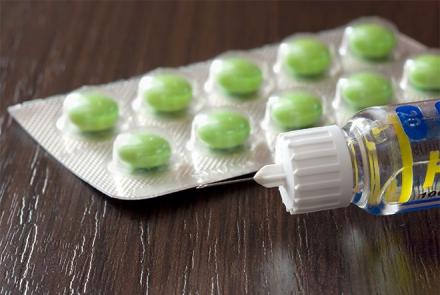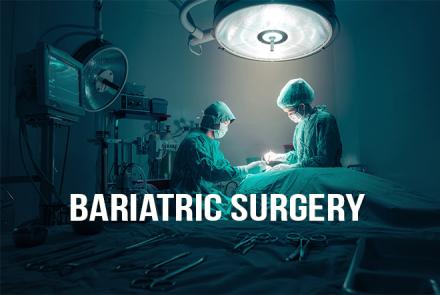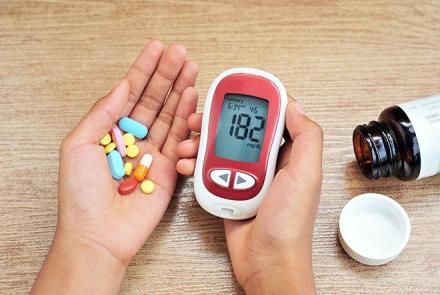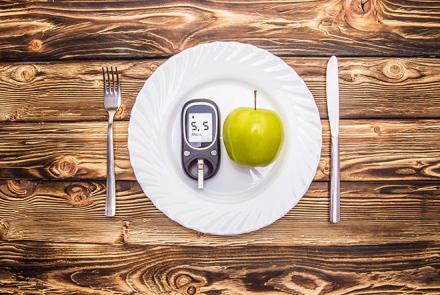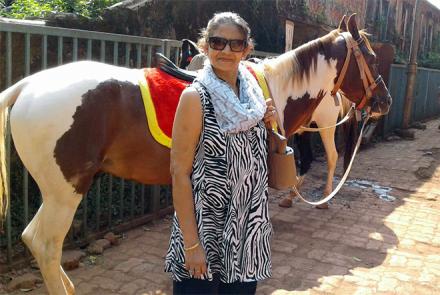
Unconsciousness or fainting is an occurrence that we are all familiar with. It is usually a symptom of an underlying medical issue. Here the PatientsEngage team helps you understand the many causes of fainting and when to see a doctor.
Unconsciousness is like a switch turning off, and most people know this as something far more familiar called fainting. When someone faints, the brain temporarily receives less blood than it needs, leading to a brief loss of awareness to their surroundings.
Most of us may have witnessed someone fainting in our school years when standing for a long duration. Fainting is a temporary loss of consciousness which in medical terms is known as syncope and happens due to a sudden drop in the blood flow to the brain. Understanding fainting helps us to get a larger understanding of the term unconsciousness which is a spectrum that ranges from a quick, harmless spell of syncope to more serious and prolonged states where the brain’s normal function is disrupted for a longer duration (coma). Unconsciousness is usually a symptom of an underlying medical issue, indicating a loss of awareness to one’s surroundings and loss of responsiveness.
What are the causes of fainting or losing consciousness?
There are many causes of unconsciousness like fall with head injuries, stroke, overdose of drug or alcohol, low blood sugar, dehydration, anxiety attack and severe heart or neurological issues. Common causes include vasovagal syncope (fainting due to reflex hypotension) may happen when one takes an injection or fears something, orthostatic hypotension (due to drop in blood pressure when one stands from sitting or lying down position suddenly), or cardiac arrhythmia (changes in the rhythm of the heartbeat). Staying out in the heat for too long is another common cause that causes loss of electrolytes through sweating and a consequent fall in temperature that may lead to loss of consciousness.
What is the difference between loss of consciousness (unconsciousness), syncope (fainting), blackout, seizure, and coma?
Syncope: It is a transient loss of consciousness due to temporary insufficient blood flow to the brain. It is rapid onset, is of a short duration, and usually there is spontaneous complete recovery. It is often preceded by pre-syncopal symptoms like dizziness, visual dimming (“tunnel vision”), nausea, or sweating.
Fainting: It is another synonym for syncope. It implies the same issue (transient decreased blood supply to the brain) but is less precise.
Blackout: It is a non-specific term, not really a medical diagnosis. It may actually refer to syncope or seizure, or transient amnesia (as in alcohol-related blackouts). When a person says, “I blacked out,” it usually needs more clarification as to whether they lost consciousness or lost memory or lost tone of posture? The term is ambiguous without context.
Loss of Consciousness (LOC): It is a broad medical term meaning complete lack of awareness and unresponsiveness to external stimuli. It is an umbrella term under which causes like syncope, seizures, head trauma, metabolic disturbances, or intoxication fall. Syncope is one type of LOC, but LOC can also be due to non-circulatory causes (like epilepsy or concussion).
Seizure (Epileptic loss of consciousness): It is a neurological cause of LOC due to abnormal cortical electrical activity, not loss of flow of blood. It often includes involuntary body/limb movements, tongue biting, involuntary evacuation of bladder or stools, post seizure state of confusion, and slower recovery. In this case the EEG shows abnormal discharges.
Coma: It is a persistent state of unarousable unresponsiveness unlike syncope or seizure, which are transient. It reflects profound dysfunction of the brainstem or both cerebral hemispheres.
Common symptoms associated with fainting
- Blacking out
- Falling for no reason
- Feeling lightheaded or dizzy
- Feeling drowsy or groggy
- Feeling unsteady or weak when standing
- Seeing spots or having tunnel vision
- Headaches
- Feeling sweaty or nauseous
What triggers fainting?
- Standing for a long time
- Taking decongestants (cough and cold medications) or some blood pressure medicines
- Being in a hot environment for prolonged periods of time
- Consuming too much food or caffeine, or too many beverages that contain alcohol.
- Having too little salt and fluids in your body
- Changing position, especially standing up quickly
- Having a heart-related issue that affects blood flow.
- Having an issue with your brain, nerves, or spinal cord
- Being out in the heat for prolonged period leading to sweating, dehydration
- Low blood glucose
- Low blood pressure due to medications or low salt intake
- Electrolyte imbalance due to excess vomiting, diarrhea or some medications like diuretics
What to do when someone has fainted or is unconscious?
Position the person on the back. If there are no injuries and the person is breathing then elevate the person's legs above heart level, if possible, by about 12 inches. Loosen any belts, collars, or other tight clothing.
In case of loss of electrolytes due to excessive sweating, diarrhea or vomiting, Oral Rehydration solution (ORS) may be given to help improve the low blood pressure due to loss of sodium.
To minimize the chance of fainting again, let the person get up slowly. If the person does not regain consciousness within one minute, then take them to the emergency department.
Check for breathing. Check for a pulse and to see if the person is breathing. If the person is not breathing, begin CPR.
Click here for on how to do First-Aid: https://www.patientsengage.com/conditions/first-aid-cardiac-arrest
When to see a doctor?
Fainting is usually benign and can be monitored at home, but you should mention it to your doctor This means that there was a single fainting episode after standing for long duration, dehydration, or due to pain, emotional stress, or heat exposure, with a quick recovery (within seconds) along with typical pre-symptom like light-headedness, sweating, or fading vision. Still, even in benign cases, it is worth one clinical assessment to rule out hidden cardiac causes, especially in adolescents or young adults engaged in sports.
When to rush to a Hospital?
Seek immediate medical attention if you notice the following:
During or before the episode:
- Exertional syncope: fainting during exercise or immediately after (may be suggestive of cardiac outflow obstruction or arrhythmia).
- Palpitations or chest pain before loss of consciousness: possibility of arrhythmia, myocardial ischemia.
- Shortness of breath or cyanosis (bluish skin): may suggest cardiopulmonary issue.
After the episode:
- Prolonged confusion or drowsiness: may be suggestive of a seizure, not simple fainting.
- Has significant injuries due to fall (especially head trauma) and is bleeding.
- Tongue biting has lost bowel or bladder control or witnessed fits: points toward epileptic seizure.
- Does not regain consciousness within a few minutes.
- If there is any associated symptoms like slurring of speech or weakness in limbs it is suggestive of a neurological cause.
History or risk factors:
- Known case of heart disease, arrhythmia, or family history of sudden cardiac death.
- Recurrent fainting or increasing frequency.
- Older age with no previous history of fainting (new-onset syncope always needs to be assessed by a doctor through an examination, blood tests and imaging where needed).
- Diabetes (risk of hypoglycaemia) or other metabolic/endocrine disorders.
- Person is pregnant.
- Electrolyte imbalance due to excessive sweating, vomiting, diarrhoea, or some medications like diuretics.
What to expect at the doctors?
The doctor will ask the family caregiver or witnesses for the history pertaining to the event. Then they will check for vital signs (BP, pulse, respiration etc).
Doctor will go on to assess the verbal responsiveness of the patient by asking questions, then proceed to check for eye opening, and muscle responses. Basis the assessment, they may send blood sample for electrolytes, blood sugar and other common parameters, and/or a CT scan to rule out neurological issues, ECG/ECHO for cardiac issues, EEG to check for seizures if suggested by physical examination.
How to prevent syncope/fainting?
“FAST”
- Fluids and salt- Make sure to drink adequate fluids and when it is hot out or during workouts as it may cause sweating which leads to loss of sodium causing lower blood pressure and subsequent fainting.
- Avoid triggers- Avoid standing for prolonged periods (especially in heat or crowded places), dehydration or skipped meals, sudden changes in posture (standing up too quickly), emotional stress, pain, fatigue, hunger.
- Shift posture slowly- Avoid standing suddenly from lying down or sitting position. Always turn to your side and then gently sit up with feet on the floor for 1-2 minutes before you stand gradually.
- Tense muscles when warning signs appear- Sitting and placing head between knees or performing counterpressure manoeuvres like leg crossing + muscle tensing, handgrip (squeeze a rubber ball or fist both hands tightly). These raise blood pressure rapidly and can.
Unconsciousness, whether as simple fainting or a more complex medical condition, is a signal from the body that something needs attention. Understanding its triggers, early warning signs, and red flags helps us respond calmly and responsibly when it happens. Most episodes are benign and resolve quickly, but a mindful approach like hydration, posture awareness, and timely medical evaluation when needed helps us to keep safe. Learning to recognise what the body is trying to communicate strengthens not only personal safety but also our collective ability to support others when these episodes occur.
References:
- Bauer, Zaith A., et al. “Unconscious Patient.” PubMed, StatPearls Publishing, 2023, www.ncbi.nlm.nih.gov/books/NBK538529/.
- Cleveland Clinic. “Syncope.” Cleveland Clinic, 3 Nov. 2022, my.clevelandclinic.org/health/diseases/17536-syncope.
- Kahn, April. “First Aid for Unconsciousness.” Healthline, Healthline Media, 20 Dec. 2017, www.healthline.com/health/unconsciousness-first-aid.
- Mayo Clinic. “Fainting: First Aid.” Mayo Clinic, 2018, www.mayoclinic.org/first-aid/first-aid-fainting/basics/art-20056606.
- MedlinePlus. “Unconsciousness - First Aid: MedlinePlus Medical Encyclopedia.” Medlineplus.gov, 2016, medlineplus.gov/ency/article/000022.htm.
- “Unconsciousness - an Overview | ScienceDirect Topics.” Www.sciencedirect.com, www.sciencedirect.com/topics/medicine-and-dentistry/unconsciousness.



